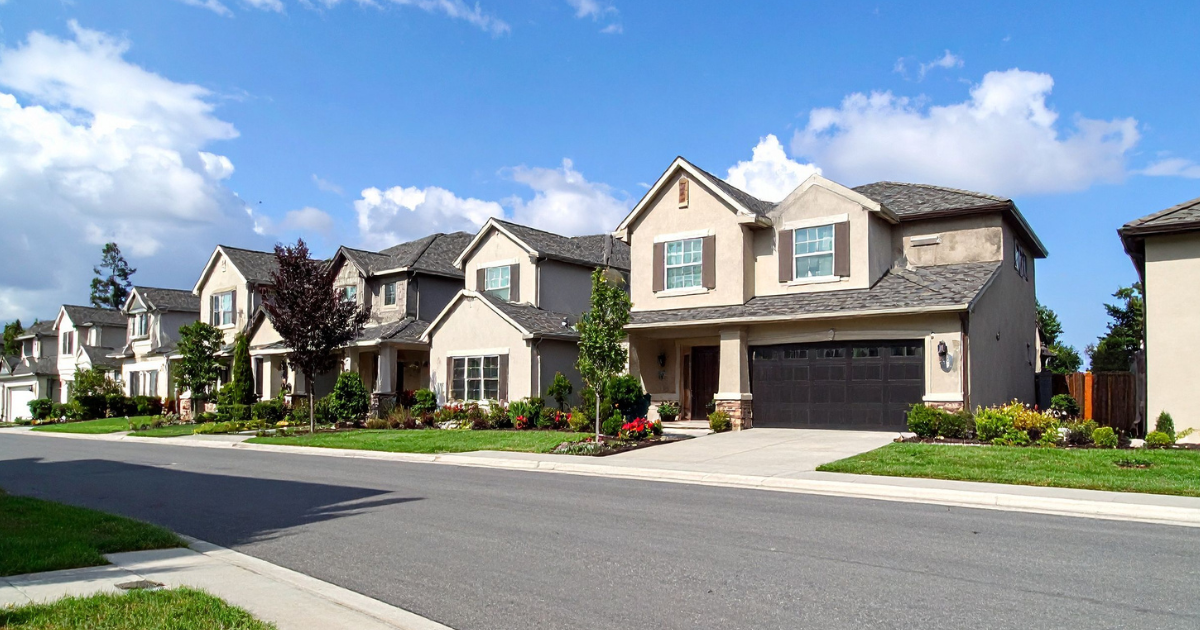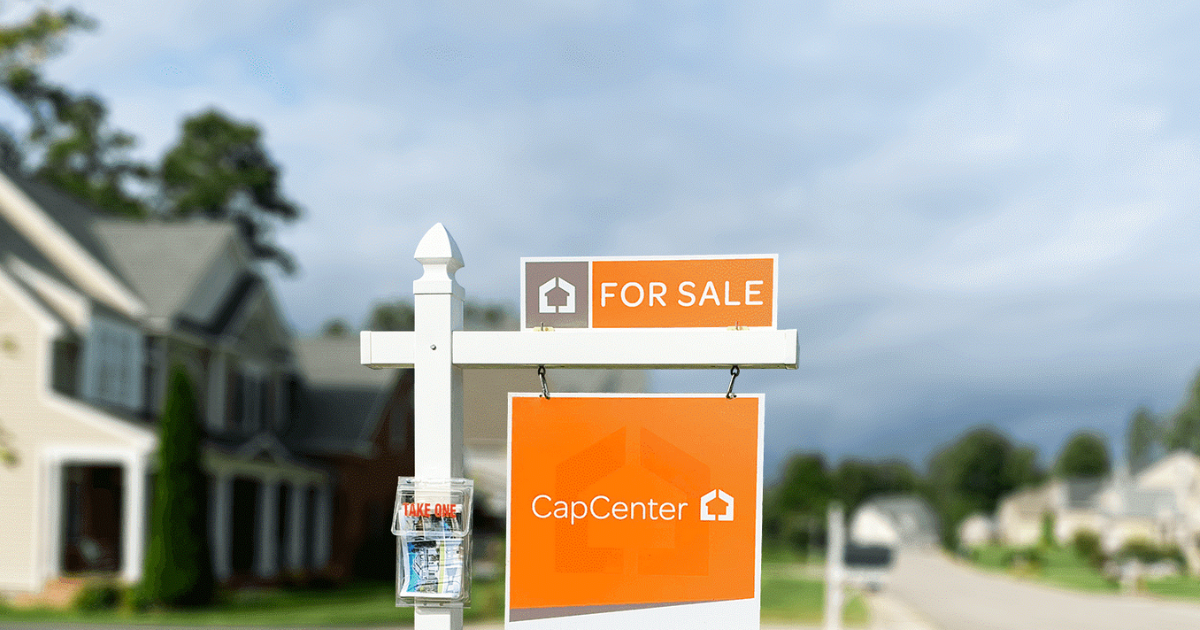When you begin exploring home financing, one of the first terms you’ll hear is conventional loan. It’s one of the most common types of mortgages in the United States, making up more than half of all home loans today. But what does “conventional” really mean, how does it compare to other mortgage options like FHA or VA loans, and is it the right choice for you?
At CapCenter, we specialize in guiding clients through every financing option available, with a strong focus on helping you save money through our Zero Closing Cost mortgage. Understanding conventional loans is a big step toward making an informed decision, and we’re here to break it down clearly.
What Exactly is a Conventional Loan?
A conventional loan is any mortgage that isn’t backed by a government program like the FHA or VA. Instead, these loans are offered by private lenders—banks, credit unions, and mortgage companies like CapCenter.
Conventional loans typically follow the standards set by Fannie Mae and Freddie Mac, the government-sponsored enterprises that buy mortgages from lenders. This ensures consistency across the industry and makes it easier for lenders to provide competitive rates.
In other words, a conventional loan is the “standard” mortgage option—flexible, widely available, and designed for borrowers with solid credit and financial stability.
Types of Conventional Loans
Not all conventional loans are the same. Within this category, you’ll find options that can fit different borrower needs.
Conforming Loans
These loans meet the criteria set by Fannie Mae and Freddie Mac, including maximum loan amounts (the conforming loan limit). For 2025, the baseline limit is $766,550 for most areas, with higher limits in expensive housing markets.
Non-Conforming Loans (Jumbo Loans)
If you’re buying a high-priced home and need a loan amount above the conforming limit, you’ll be looking at a jumbo loan. These loans don’t meet Fannie Mae or Freddie Mac requirements and often require higher credit scores and larger down payments.
Fixed-Rate Conventional Loans
These offer stable monthly payments over the life of the loan. Popular terms include 15 and 30 years, making them a go-to choice for homeowners who want predictability.
Adjustable-Rate Mortgages (ARMs)
ARMs start with a lower introductory rate that adjusts over time based on market conditions. While they can be cost-saving in the short term, they come with the risk of future rate increases.
Who Qualifies for a Conventional Loan?
Conventional loans are known for their flexibility, but lenders do set certain requirements to manage risk. Here are the key factors:
- Credit Score: Generally, you’ll need at least a 620 to qualify. Higher scores may help you secure a lower interest rate.
- Down Payment: Many people think you need 20% down, but that’s not true. You can buy a home with as little as 3% down with certain conventional programs.
- Debt-to-Income Ratio (DTI): Lenders want to see your monthly debt compared to your income. A DTI below 43% is often required, though exceptions exist.
- Employment & Income Verification: Stable income history plays an important role in approval.
At CapCenter, we walk clients through these qualifications and help them find ways to strengthen their application. And remember, with our Zero Closing Cost mortgage, you won’t need to bring thousands extra to the table just to cover fees—keeping more of your money available for your down payment.
Advantages of a Conventional Loan
There’s a reason conventional loans remain the most popular mortgage type. Here’s why many buyers choose them:
- Lower Costs Over Time: With a strong credit score, you’ll often qualify for lower interest rates compared to other loan programs.
- Flexible Terms: From 10-year to 30-year mortgages, conventional loans offer more choices.
- No Upfront Mortgage Insurance: Unlike FHA loans, which require both upfront and annual mortgage insurance, conventional loans only require private mortgage insurance (PMI) if you put less than 20% down—and PMI can be removed once you reach 20% equity.
- Higher Loan Limits in Many Areas: Conforming loan limits adjust based on home prices, giving borrowers more flexibility in expensive markets.
Potential Drawbacks to Consider
While conventional loans are a strong option, they aren’t right for everyone. Some challenges include:
- Stricter Credit Standards: If your credit is less than ideal, FHA loans may be easier to qualify for.
- PMI Requirement with Low Down Payment: If you put less than 20% down, you’ll need PMI until you build enough equity.
- Higher Down Payment than Some Programs: VA and USDA loans allow zero down, while conventional usually requires at least 3%.
CapCenter helps clients weigh these tradeoffs. Sometimes an FHA or VA loan makes more sense depending on your situation, and we’ll guide you toward the product that benefits you most.
Conventional Loan vs. FHA, VA, and USDA
To put things in perspective, let’s compare:
- FHA Loans: Easier credit and down payment requirements but come with lifelong mortgage insurance unless refinanced.
- VA Loans: Exclusive to veterans, active-duty service members, and eligible spouses. No down payment or PMI required.
Conventional loans offer a balanced path: wider availability than VA or USDA, and potentially lower long-term costs than FHA—especially when you qualify to remove PMI.
How CapCenter Makes Conventional Loans Better
Most lenders charge thousands in closing costs, even on conventional loans. These fees—covering things like processing, underwriting, and origination—can eat into your savings fast.
At CapCenter, we’re different. We pioneered the Zero Closing Cost mortgage, meaning you don’t have to budget extra for lender fees. This makes conventional loans even more affordable, whether you’re buying your first home or refinancing your current one.
Pair that with our in-house realty team, home search tools, and insurance services, and you’ve got a one-stop partner for your entire homeownership journey.
FAQs About Conventional Loans
Do I really need 20% down for a conventional loan?
No. You can buy with as little as 3% down. A 20% down payment simply allows you to avoid PMI.
Can I refinance into a conventional loan?
Absolutely. Many homeowners refinance from FHA into a conventional loan to eliminate mortgage insurance.
Is a conventional loan right for a first-time homebuyer?
Yes. With low down payment options and flexible terms, conventional loans are a strong choice for first-time buyers who have solid credit.
How do I know if I’ll qualify?
The best way is to talk to a lender. At CapCenter, we’ll review your credit, income, and goals to help you find the best fit—without adding unnecessary costs.
Final Thoughts
A conventional loan is often the best path to homeownership for borrowers with steady income and good credit. It’s flexible, widely available, and can save you money over time—especially if you’re able to avoid or eliminate PMI.
When paired with CapCenter’s Zero Closing Cost mortgage, the benefits become even more powerful. You keep more of your money for your down payment, your monthly payments, or even your next big project in your new home.
If you’re ready to explore your conventional loan options, Contact CapCenter Today! We’ll walk you through every step and help you make a confident, cost-saving decision.




